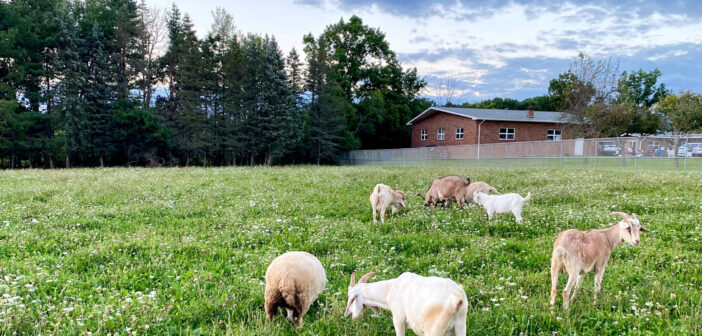The Pennsylvania Department of Agriculture invested $3.166 million to protect 18 farms throughout the state from being sold to developers. Eleven of these farms are in the Lehigh Valley and four are in Northampton County, according to a Pennsylvania state press release.
Pennsylvania newly protected over 784 acres of farmland throughout nine counties. Farm owners sold their land development rights in order to ensure their farms are not sold for residential, commercial or industrial development. These farms will remain protected and serve as farms in the future, even if current landowners choose to sell the deed to the land.
In Northampton County, $267,879 was invested at the state level, $160,882 at the county level and $239,102 at the township level.
Pennsylvania is a national leader in farmland preservation with over 6,000 farms and 600,000 acres preserved.
“The Farm Preservation Program is an ongoing partnership among every level of government,” said Shannon Powers, press secretary for the Pennsylvania Department of Agriculture. “Local, county, state and federal, and many private organizations are devoted to ensuring we have farms to produce food for the future.”
Douglas Wolfgang, director of the Bureau of Farmland Preservation at the Department of Agriculture, said the program began in 1989 and was modeled after a similar program that began in Maryland in the 1980s.
Wolfgang said the program works to ensure viable farmland remains for a growing population with funds that are cycled back into the agriculture economy.
This happens through a process known as easement purchasing, where a new party (the state) obtains the authority over land owned by someone else (the farms).
“Farms proposed for easement purchase go through a ranking at the county level based on criteria that is developed first by the county boards and then approved by the state board,” Wolfgang said. “The highest-ranking farms, with the best soils, under the greatest threat for development, are targeted for preservation.”
Wolfgang said there are still 1,200 farms across the state that are waiting to be preserved.
Powers said Pennsylvania land is valuable to commercial developers because of its location and to residential developers because of its natural beauty.
“But if we were to sell all the land to development, that natural beauty and character would be destroyed,” Powers said.
Chad Meyerhoefer, a Lehigh economics professor, said Pennsylvania is a leader in the production of mushrooms, apples, Christmas trees and dairy products.
Meyerhoefer said the Lehigh Valley, specifically, contains fertile soil for many crops such as corn, soy beans, potatoes and grains, in addition to fostering turkeys and their feed.
“Because Pennsylvania contains a large number of small towns in rural areas, many residents live in close proximity to farms,” Meyerhoefer said. “As a result, there is broad political support in Pennsylvania for farmland preservation programs to protect the state’s rural heritage.”
Keith Sten, education manager at Historic Bethlehem Museums & Sites said the Lehigh Valley has many farms due to another agriculture conservation program started in the 1940s, which focused on preserving farmland from soil erosion and other factors that impact farmland.
Meyerhoefer said the amount of farmland in the Lehigh Valley has decreased over time due to urbanization, but many smaller farms have been preserved through state and county farmland preservation programs.
Powers said other states look to Pennsylvania’s leadership in forging historical partnerships with federal agencies.
Meyerhoefer said The Farmland Preservation Program will have a lasting effect on the agriculture economy in Pennsylvania.
“Pennsylvania has a large and increasing number of small farms that sell their products directly to consumers through farmers markets and online platforms and to local restaurants under farm-to-table programs,” Meyerhoefer said. “As consumer demand for locally grown and organic products increases, many small farms in (Pennsylvania) will continue to shift to direct-to-consumer sales.”
Wolfgang said the program can be expanded to include more farms with the help of greater funding from the federal government and involvement with nonprofit organizations.






Comment policy
Comments posted to The Brown and White website are reviewed by a moderator before being approved. Incendiary speech or harassing language, including comments targeted at individuals, may be deemed unacceptable and not published. Spam and other soliciting will also be declined.
The Brown and White also reserves the right to not publish entirely anonymous comments.